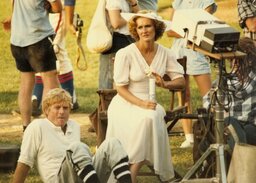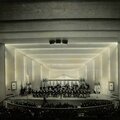From the unveiling of Thomas Edison’s kinetoscope to Buffalo’s Film Row to The Natural, which filmed 30 years ago this summer, we have a long and colorful history with the movie business.
Lights, Camera… Action!
The full content is available in the Summer 2013 Issue, or online with the purchase of:
If you have already purchased the product above, you can Sign In to access it.
Related Content










